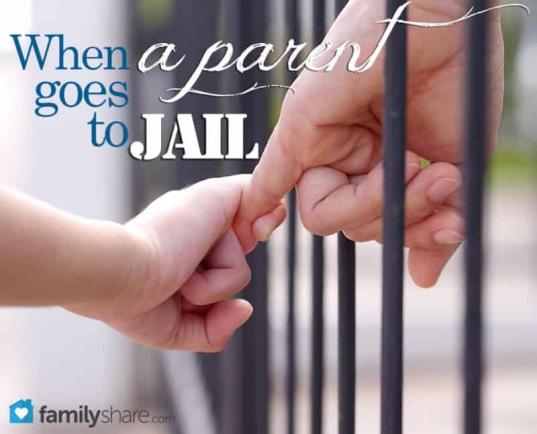
Three in every 100 American children have a parent behind bars according to Nell Bernstein, author of All Alone in the World: Children of the Incarcerated.This makes it an important circumstance to be aware of and know how to handle. As neighbor, teacher, caregiver, family or friend, none of us know when we might need to support the child of an incarcerated parent.
When the parent first goes to jail, children are usually swimming with questions about their parent and about themselves. Among them are:
Questions about the parent
What is jail like? Where will my parent sleep? What will they eat? Will they have a roommate? When will they come home? Why are they there? Can I talk to them? Can I write them letters?
Questions about the child
What will happen to me? Who will take care of me? Where will I stay? Is this my fault? Should I do something to help? Does my parent still love me? Why did this happen?
Questions should be answered with complete honesty, but on a level that the child can handle. Here are some tips for handling the tough ones:
Why is my mom or dad in jail?
For youngsters, an incarceration can be explained like a time out. When a child breaks the rules, they are often given a time out. When a parent does something against the law, they may be given a time out as well. For teenagers, the truth can be delivered in a more accurate way, explaining the crime and the punishment. It is important for children to know that rules and laws must be obeyed or there are consequences.
What is it like in jail?
A jail is like a dormitory with separate rooms. There are toilets and a sink in the room. There are beds and usually a desk or table. The inmates eat in a cafeteria and generally get time to exercise. Sometimes they are allowed to watch television. They are not allowed to leave until their time out is completed. They may receive letters and may or may not be allowed phone calls or visits. They wear a uniform.
How long will her or she be there?
Answer honestly and don't give false hopes about early release.
What is going to happen to me?
This is the most frightening part. If there are two parents involved with the raising of the child, the answer will be the other parent with support of family and friends. If the parent is single, the child needs to know that family and friends will be there for them. The group Inside-out Connections: Supporting Children of Incarcerated Parents has put out a wonderful booklet available here in PDF format. In this booklet is a wonderful form that the child can help to fill out with names of trusted adults and friends.
Can I see him, talk to him or write him?
The answers to these will depend on the crime, the jail and the regulations. But answers should be obtained sooner than later and the child informed of them. Regardless of how you feel about the incarcerated parent, he is still the parent and all efforts should be made for communication between the child and the parent. If visits are allowed, arrange for them. Help the child call and write if that is permitted.
Does my mom or dad still love me?
The answer is yes. The parent still loves the child and the child ought to be encouraged to love the parent.
Is this my fault?
Children must be told, often repeatedly, that the crime has nothing to do with them. Often a child will manipulate the facts in his mind to reflect the idea the parent was breaking the law in order to help the child. Children have to be taught that, just as they are accountable for the choices they make, so is their parent. It has nothing to do with the child. He or she is not at fault.
Why do I feel sad and angry?
Having an emotions chart in a prominent place for the child to point to how she is feeling at any given time is a useful tool to help her express their feelings. She will go through sadness, frustration, anger and a number of other feelings and needs to be able to tell someone about them and be understood. Help the child to understand that the things she is feeling are normal and may change from time to time. Listen when she needs to speak, ask questions or simply express how she is feeling.
This is something no child should ever have to deal with, but many do. As caretakers, we need to know the best way to handle the questions and concerns ricocheting around in a child's mind. Our job is to make the transition for the child as pleasant and communicative as possible. Listen. Ask. Be patient. Love unconditionally. Remain open and supportive of both parent and child.

